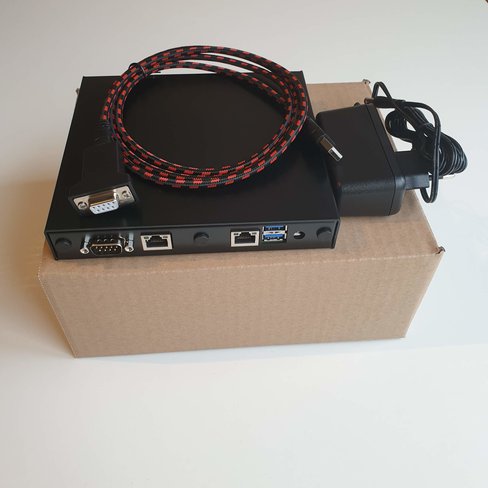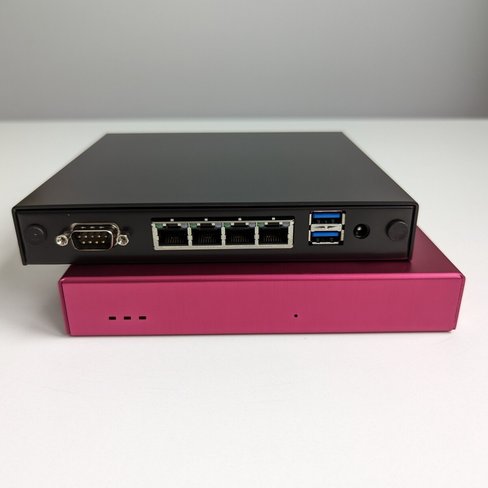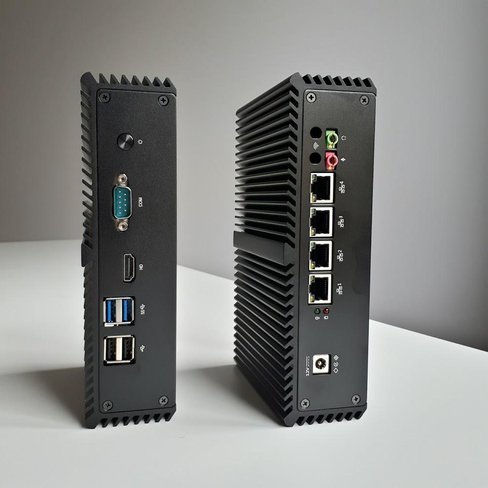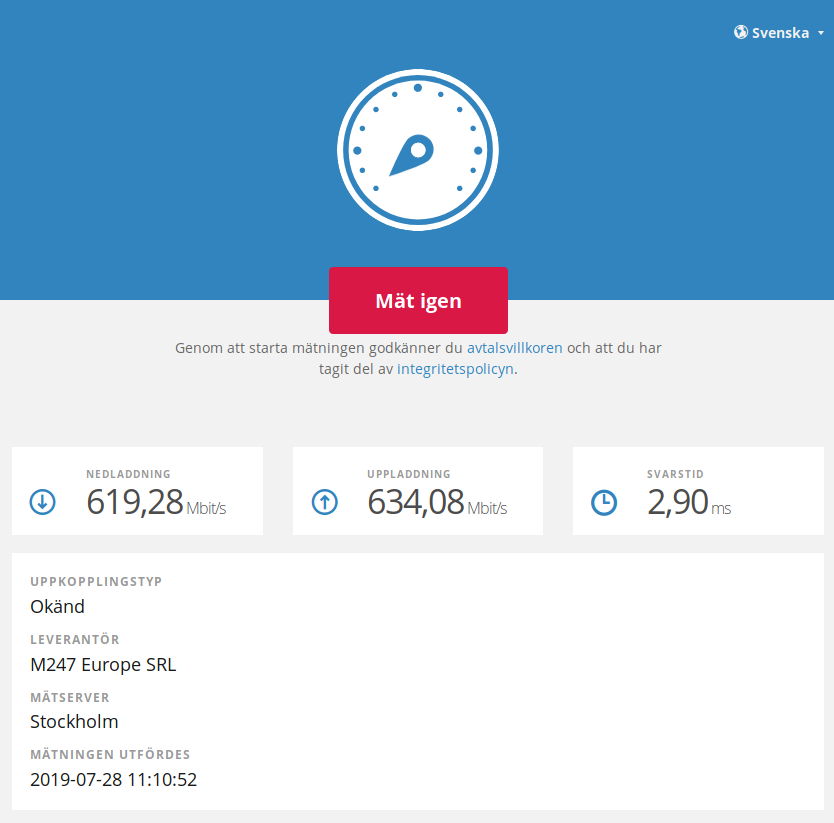What router to buy for NordVPN
At TekLager we sell a lot of open source hardware. Many of our customers value privacy and are fans of NordVPN for protecting their identity online. One frequent question we get is "Which router should I buy for NordVPN?"
Here are our thoughts and recommendations.
NordVPN router hardware requirements
The most important thing is to buy hardware powerful enough to handle your internet connection without hiccups. There's nothing as frustrating as having a slow, flakey internet connection.
The most important hardware component for VPN speed is CPU. OpenVPN heavily depends on the CPU for encryption and decryption of traffic. Other components such as memory, network interfaces or disk are far less important.
NordVPN hardware appliance recommendations
Any router you buy from us will come preconfigured and optimized for NordVPN. The only thing left to do will be to enter your username and password.
APU2E0: Entry-level OpenVPN box
APU is a well known, reliable hardware manufactured by Swiss company PC Engines. APU2, APU3, and APU4 routers are the most popular hardware firewalls we sell at TekLager. There are few versions of APU, starting at entry-level APU2E0, to the latest version of APU4C4.
This is the cheapest dual NIC NordVPN router we sell but don't be deceived, it's a very capable hardware appliance for home or small office.
Tip: in most applications, this box will perform just as well as the more expensive versions.
APU2.E0 router specification
| CPU | 4 core, 1.0 GHz (1.4GHz boost) AMD GX-412TC (with AES-NI) |
| RAM | 2GB DDR3-1333 DRAM (option with 4GB ECC available) |
| NICs | 2x Gigabit Intel i211AT (Option with 3 and 4 ports available) |
| Storage | 16GB mSata SSD (300MB/s) |
| Cooling | Passive, fanless cooling. |
| Power | 6-10W - very low power consumption |
| pfSense | OpenWRT | |
|---|---|---|
| Routing | 750Mbit / 1Gbit | 1 Gbit / 1 Gbit |
| NordVPN throughput | 100 Mbit/s | 145 Mbit/s |
Our favorite thing about APU routers is that they are 100% silent, cheap, powerful enough and super reliable.
This box is going to satisfy most of the small office or home users. It's powerful enough to route gigabit traffic and between 100-145Mbit/s over VPN.

APU2E0: 2x Gigabit LAN, Quad Core CPU, 16GB SSD, 2GB RAM
2,098 SEK
( about $180 USD)
APU4.D4 OpenVPN router (most popular)
For those who would like to have a bit more memory, or LAN ports we recommend APU4.D4, which is one step up from APU2E0.
It comes with 4GB of ECC RAM, and 4x Gigabit LAN ports.
APU4.D4 router specification
| CPU | 4 core, 1.0 GHz (1.4GHz boost) AMD GX-412TC (with AES-NI) |
| RAM | 4GB DDR3-1333 ECC DRAM |
| NICs | 4 x Gigabit Intel i211AT |
| Storage | 16GB mSata SSD (300MB/s) |
| Cooling | Passive, fanless cooling. |
| Power | 6-10W - very low power consumption |
| pfSense | OpenWRT | |
|---|---|---|
| Routing | 750Mbit / 1Gbit | 1 Gbit / 1 Gbit |
| NordVPN throughput | 100 Mbit/s | 145 Mbit/s |
This router has the same CPU as APU2E0, so it will perform identically when used with OpenVPN.
This configuration is very popular. 4 GB of RAM gives you plenty of space to install additional software packages. Additionally, APU4 comes with a serial-to-USB cable and a wall-mount.

APU4D4: 4x Gigabit LAN, Quad Core CPU, 16GB SSD, 4GB RAM
2,331 SEK
( about $250 USD)
TLSense i7 - the gigabit OpenVPN router
TLSense i7 is a really powerful router.
TLSense series is built do deliver very high OpenVPN and IPSec performance. This hardware is most often purchased by customers who have a Gigabit internet connection and want to utilize it over high-throughput OpenVPN connection.
It's also great if you plan to use IDS/IPS packages such as Suricata or Snort for Intrusion Detection and Prevention.
It has a powerful Intel i7 CPU, 8GB of RAM, and 60GB SSD. It comes with 4 Gigabit Intel LAN ports and an HDMI port, so you don't need a serial cable.
| CPU | Intel Core i7 Dual Core, 4 threads, 4M Cache, Up To 3.1GHz. |
| RAM | 8GB DDR3-1333/1600 DRAM ( 16 GB option available ) |
| NICs | 4 x Gigabit Intel i211AT ( 6 port version available ) |
| Storage | 60GB mSata SSD (300MB/s) |
| Cooling | Passive, fanless cooling. |
| Power | 15W - very low power consumption |
| pfSense | OpenWRT | |
|---|---|---|
| Routing | 1 Gbit / 1 Gbit | 1 Gbit / 1 Gbit |
| OpenVPN throughput | 600 Mbit/s - 1 Gbit/s | 600 Mbit/s - 1 Gbit/s |
| WireGuard VPN throughput | (not supported yet) | 1 Gbit/s |

TLSense 4500U: 4x Gigabit LAN, 4th gen i7 CPU, 64GB SSD, 8GB RAM
4,372 SEK
( about $515 USD)
Moreover, connection speed depends on a number of different factors, like server distance, server load, your original internet speed, VPN protocol you are using, etc.
In our tests, TLSense i7 delivers between 600 - 700 Mbit/s when utilizing about 65% of one CPU core. When we have tested the VPN speed in controlled "lab" conditions (with server and client on the same LAN), the VPN speed was 900 Mbit/s.
Here's a screenshot from bredbandskollen.se/en/ a Swedish speed testing website.
